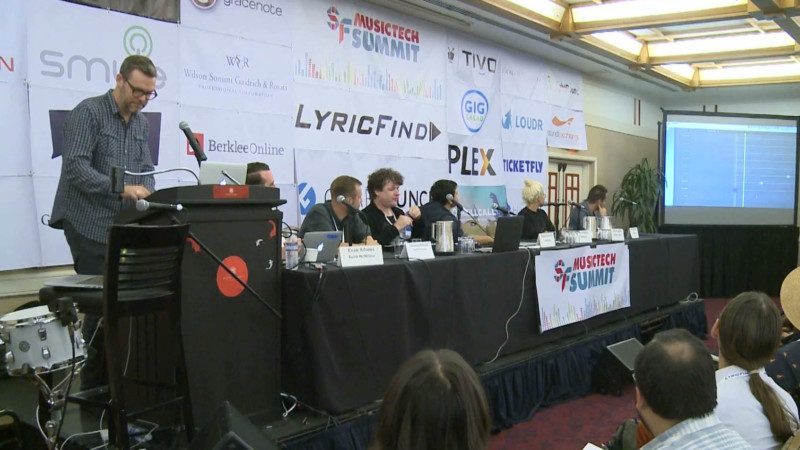Technology has transformed the music industry over the past few years with companies like Pandora, Spotify, and more recently Apple Music, shaking up the market. But many analysts say there's a whole lot more out there for tech to play with.

Tech impacts music industry in different ways
DJ Qbert one of the world's most skilled record scratchers shows off his new technology. The Invader turntable with a built-in computer.
The San Francisco music tech summit is all about bringing together artists, technologists and investors to make music and hopefully lots of money.
"It's really an industry that's globally tens of billions and is actually a growing industry now. So Music technology is a super exciting space because everybody globally loves music, it's only question is to what extent," said Larry Marcus, Managing Dir. of Walden Venture Capital.
Bosco Kante realized performing with a setup like this was too restrictive, so he designed his mobile-based electric spit.
Drumming isn't skipping a beat in taking on more portable and techie formats.
Drummer Tlacel Esparza invented what he calls "sensory percussion." It allows drummers to score their beats and produce unlimited sounds.
"It's a software interface that's built for drummers, which is unique in that most drumming software is built for non-drummers in order to put drummers out of business," said Tlacel Esparza, Co-founder of Sensory Percussion.
At the event, several winners of the startup competition featured instruments that accelerate the learning process.
Chinese startup, "The One," makes smart pianos aimed at keeping a 6-year-old child interested in playing.
The One keyboard is obviously good for new students and young kids learning to play for the first time. It's also for people of all ages, like myself. I played when I was little, but it's been decades since I last played. I can't remember a whole lot.
The app combined with keys that light up show me the way, slowly getting my clumsy fingers to make recognizable music.
"For example piano learners, they give up within two years' time. It's like 70-80% of people give up. What if we can keep them on and further develop their interest and also the community and inspire more music lovers," said Ariel Lu, product director of The One.
But does all this connected gadgetry risk losing music's soul. Lu says no, emphasizing that tech can help so many more stay on course to realize their potential.















